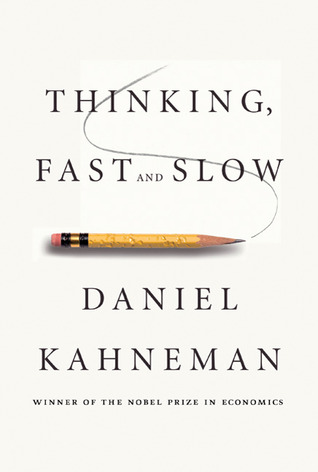Note: this site is still up to serve as a reference for people who took the course in Fall of '18. If you're currently enrolled, please head to the site for the current semester.
Related Readings
Not all of these will be directly applicable to this course, but all will help you be a better coder and/or think better quantitatively.
Computational and Inferential Thinking
Ani Adhikari and John DeNero
A free, online, interactive textbook was developed at Berkeley for their introductory data science course, which also uses Python and is based heavily on Jupyter Notebook. You can read the text here.

Thinking: Fast and Slow
Daniel Kahneman
Kahneman explores the psychological aspects of statistical thinking, and explains a variety of cognitive biases that may arise when we estimate.
For example, humans are better at averaging than summing. Implication: if you're trying to convince somebody of something, it's 3 good arguments alone are better than 3 good arguments plus 2 mediocre arguments (the latter increases the sum but drops the average). Fast+Slow has many such examples that will help you be more persuasive and avoid making common cognitive mistakes about probabality.
goodreads>>PyMOTW-3
Python Module of the Week is a blog that covers various interesting Python libraries. Past posts are described at https://pymotw.com/3/.